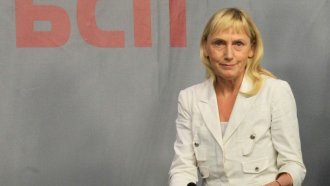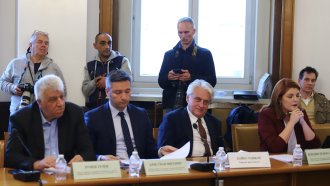Commentary:
Mother Nature: Sofia’s most effective and efficient governing body
Sofia’s air during wintertime becomes hazardous every year. The concentration of fine dust particles sky rocket five and more times over the maximum threshold. Again, this is every year and lasts for the majority of winter.
Sofia’s budget is one-and-a-half billion leva, which increases steadily every year by about 100 million leva. Last year Sofia’s mayor Yordanka Fandakova proudly announced that “while it might not be visible at first glance, all of Sofia’s 2018 budget is dedicated to clean air”. Not that the budget had much differed structurally compared to previous years but at least the mayor took the issue seriously enough to point out the air as one of its top priorities for 2018. The question of why the sudden interest has nothing to do with the existence of the problem: the air in Sofia hasn’t worsened much over the past few years. The only thing that has changed is public awareness, information and demand for measures to be taken.
Fast forward one year. Last month the European Commission gave Bulgaria two months to implement measures for cleaner air. The EC concluded that Bulgaria has failed to adopt any measures in order to fulfill the Commission’s decision from April 2017 (!) on Bulgarian air quality. The 2017 assessment is a follow up on a previous similar one from 2015, concluding essentially the same and calling on Bulgaria’s government to adopt measures to reduce air pollution. After this last two-month extension the Commission will be seeking fines.
Up until several years ago the only information about Sofia’s air quality came from the less-than-ten municipal sensors across the city, which also had a curious habit of breaking down in times when the breathing was heaviest. One sensor in the heart of the city, in one of the most polluted areas, Orlov Most, even got removed altogether. The municipal government also has had the help with some numbers from a very a friendly sensor, which is located half way up the mountain of Vitosha right above the city. Its data has proven very useful when it comes to calculating city-wide averages of fine dust particles.
Public pressure for cleaner air began roughly several years ago. In 2016 and 2017 the public’s awareness rapidly grew in Sofia and elsewhere, and led many citizens – in Sofia and across the country - to buy personal sensors for air quality. This quickly populated the Bulgarian map with live info of the levels of air pollution at airsofia.info. Thanks to citizens’ involvement and action the mounting data could no longer be ignored, it seemed, and the mayor finally admitted the problem is real and great and measures will be taken. The state government’s stance on the matter was similar.
The municipal government of Sofia has done two things regarding air quality since the first time it hinted the air quality might be a serious problem. One, it introduced a ‘green ticket’ for the public transportation system, which it sometimes enacts when the air quality gets too bad. The ticket costs 1 lev, instead of the normal 1,60. Second, buffer parking spaces near subway stations are free.
These measures, for one are stand alone measures to combat a serious problem. They are not a part of a policy or any kind of system of measures: at best these are supporting actions, which should be an integral part of a systematic policy approach. Second, if a ‘green ticket’ is to have any sort of preventive effect, it should be implemented before the air becomes unbreathable. And last, as the green ticket, and the free parking spaces are the measures, and they are not preventive, but reactive, this is a way for the municipal government to say that cars are the main cause of the pollution in the city. Which, while certainly not helping matters, they are not.
Sofia has done nothing to reduce the use of solid fuel for heating, which is the number one air polluter in the cities. And this is precisely why pollution sky rockets when it is cold. Nor has it introduced real infrastructural measures to motivate people out of their cars, which is the second cause for pollution, be it far second. And it continues to lie about the levels of pollution.
Last week after two days of extremely dangerous air, the municipal government of Sofia enacted the green ticket for the day. It did this by citing fine dust particle levels several times lower not only compared to the data in the independent airsofia.info but also several times lower than the municipality’s own official data. The next day the true governing force of the city – nature – came forward and blew off the smog via wind, for which the municipal government almost seemed ready to take credit for. And likely will, after some months pass, to justify how much its doing and the results it is achieving.
Due to heightened public pressure these days both the municipal and state governments have been bending over backward declaring what they plan to do to reduce air pollution. Policies, measures, sanctions, strategies you name it. And Yordanka Fandakova might very well decide to make the same speech about next year’s budget, as she did last year. But we already know that such statements exist only to fill up the time before the winds decides to blow. The lack of any policy or governing potential (beyond holding onto power at all costs) has become too overwhelming to ignore.
Bulgarian governance overall, be it local or national, is either extremely corrupt, incompetent or both. This is serious enough but in a few areas such as healthcare, road safety and air quality the crimes of incompetence and abuse of power cost lives, plainly. Holding the government accountable and demanding better governance in Bulgaria becomes less and less a question of misuse of public funds or failed opportunities for a better life and more of a question, unfortunately, of physical existence.
Meanwhile, we are bound to look at the forecast every day, hoping for the wind to come by, which is really the only effective counter measure we have against polluted air.
In other news:
Deputy mayor of Sofia in charge of transport policy resigns

The deputy mayor of Sofia in charge of transport policy resigned earlier this week amid growing dismay over the renovations of one of the most notable streets in the historical center of the city, Graf Ignatiev. The renovations began in early May of 2018 and has been a subject of scandals and public outrage for the past several months for low quality execution, the costs, the fact that the company in charge is the now infamous GP Group, which investigative journalists from Bivol.bg put in the center of a grand EU funds fraud corruption scheme, and not least of which – for failure to meet deadlines.
Krusev is being investigated for abuse of trust following a claim filed by the civil society organization Spasi Sofiya (Save Sofia). The organization claims a scheme was put in place to replace the approved noise proof platforms under the tram rails with lower quality ones illegitimately. Kursev has defende the changes, but Save Sofia points out that during the tender proceedures for the project another firm was rejected for proposing to use this exact material, which GP Group ended up using during the implementation anyway. Kursev resigned when the Prosecutor’s Office announced it is investigating him and is planning to indict him.
For now transport governance will be added to another of Yordanka Fandakova’s deputies, Doncho Barbalov. Barbalov is also in charge with the topics of budget and healthcare. He was once in charge of transport again before Fandakova appointed Kursev in place of the former occupant of the office, Liubomir Hristov, who also got removed because of a corrupt tender for bus stops in 2016.
Yordanska Fandakova gave a press conference announcing the appointment, during which she made it cler that she does not feel she carries personal responsibility for the desastors, administrative or otherwise, regarding the renovations project. The opposition in the face of the Bulgarian Socialist Party, however, disagrees. As per the law, they have pointed out, the mayor of a municipality is the person responsible for public contracts. In BSP’s view, since the project is so overwhelmed with problems, the mayor herself should take over charge of the transport branch of the city governance.
Special Court of Appeals return Dessislava Ivancheva and Bilyana Petrova in jail again
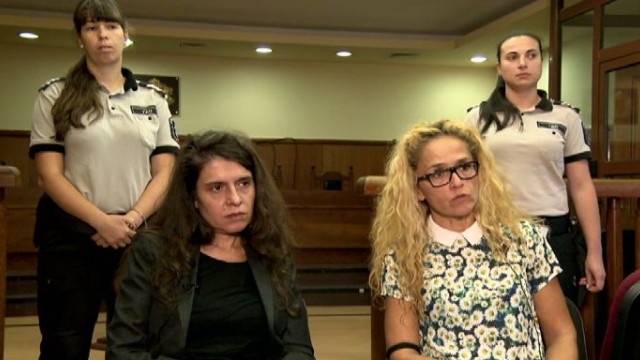
The Special Appeals’ Court continued its succession in reversing the court’s decisions to release former mayor of the district of Sofia, Mladost and her deputy under house arrest. The two are charged with receiving a hefty bribe in return for issuing a construction permit and have been in jail for seven months now. The arrest (2) itself struck many as a spectacle orchestrated by authorities for PR purposes more than anything else.
The case is undergoing proceedings during which the prosecution’s case grows thinner and thinner but at the same time the punishment of the accused only grows heavier, beyond the point of ridiculousness. Regardless, as the prosecution is done with witness testimonies, it is remains unclear what the court of appeals’ actually means by suggesting the two pose a threat if put under house arrest. The only justification by the court before was witness tampering. And precisely the fact that all the witnesses had already testified, together with worsened heath, in the continuous reasoning by the judge in the case for letting them out of jail. Then the ruling is reversed upon appeal from the prosecutors.
Both women’s health is deteriorating, which is one of the court’s reasons for releasing them but the court of appeals declared that they pose significant danger to the public if released and moreover, the conditions in the jail do not affect in a negative way their health.
In fact the living conditions in the jail where Ivancheva and Petrova are being held are horrific. Bulgaria’s ombudsman Maya Manolova went to visit their cells last week and released photos, which ended the matter-fact argument between the two women on the one hand, and the authorities, on the other, who claimed that the jail fully compliant with EU standards for incarceration facilities.
Chairman of Supreme Court of Cassations Lozan Panov refuses to answer Supreme Judicial Council questions about a critical speech he made
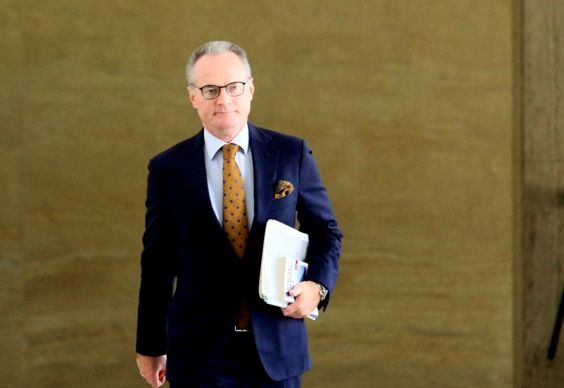
The chairman of the Supreme Court of Cassations Lozan Panov once again denied to answer questions from the majority in the Supreme Judicial Council about his recent speech on the dependencies in the system. He left the council’s meeting, saying he has already explained why he wouldn’t. last week Panov called the tactic by the council of demanding this sort of explanation “an approach typical of another epoch, which we have been told, is over”. He also warned that these sort of inquiries set a dangerous precedent for any magistrate, who expresses his or her views.
Panov gave a speech at an international forum in November in which he criticized the European Commission’s withdrawal from the Cooperation and Verification Mechanism and said that the chief prosecutor secures a political umbrella for his friends.
The chair of the SJC Boyan Magdalinchev went on to criticize Panov for not replying even after the chairman of the SCC had left the meeting until the chairman of the Supreme Administrative Court Georgi Cholakov pointed out that it is Panov’s prerogative to refuse to answer.
Magdaliychev is known to attack Panov. Recently he went on the Bulgarian National Television and said tax authorities have been unable to reach Panov, implying he Panov is evading authorities in connection with his tax returns. Panov’s wife declared told reporters this week the story is entirely false and called on Magdaliychev to come forward and support his claims with facts and proof.
Nilolay Banev and wife Evgenia Baneva will be charged with laundering over one billion leva
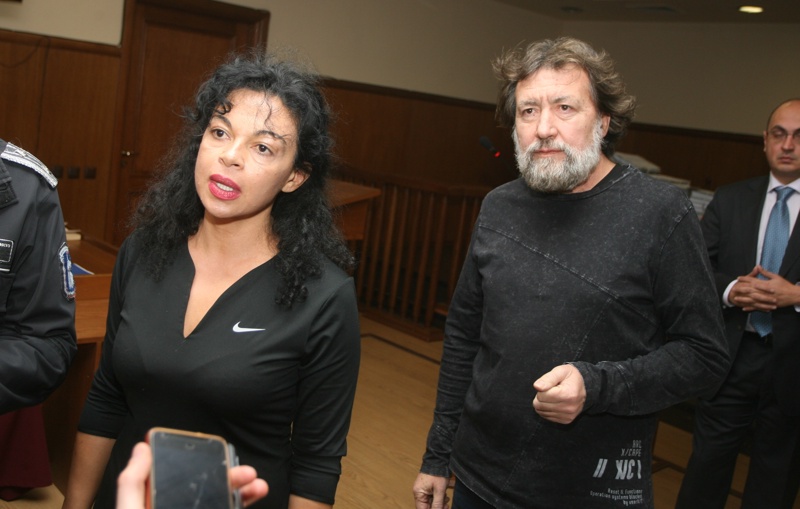
The Banev family, who were extradited from France on Thursday have been placed under arrest and will be facing money laundering charges for over one billion leva.
The prosecutors claim they have proof that Nikolay Banev led a criminal enterprise together with his wife and mother to launder huge amounts of money over the years
The Banev family famously privatized the chemical factory Polimeri, which declared bankruptcy back in 2012.
The family will also be charged with large-scale embezzlement from Polimeri and from other privatized companies over the years.
It is still a bit of a mystery as to why the Prosecutor’s Office have acted against the Banev family now, as the allegations put forward consist of information about circumstances, which have been well-known public secrets for many years.
It is official: Bulgaria will not sign the UN migration pact

The Bulgarian government made the final decision to not be part of UN’s migration pact, along with Austria, Hungary, the Czech Republic, Slovakia and Poland. Bulgaria won’t even send representatives to take part in the conference in Morocco on December 10 and 11, when the UN member states will sign the pact.
“For now the Bulgarian Government feels the decision to not take part in the Global Compact for Safe, Orderly and Regular Migration protects the interests of the country and its citizens in full.”, the government’s press office said.
If the General Assembly decides to vote on the pact, Bulgaria will abstain.
Government gives the go-ahead for changing the concession contract for Bansko ski zone

The Council of Ministers’ press office announced this week the Cabinet has tasked Minister of Environment Neno Dimov with negotiating amendments to the concession contract for Bansko ski zone with Yulen. The amendments are meant to allow the concessionaire to expand its zone to protected areas of Pirin National Park.
At the same time the Supreme Administrative Court canceled the ruling by the previous instance that any change in the Management Plan of Pirin National Park needs to undergo a environmental impact assessment before thwe government adopts it. The cancelation means that a new panel of judges will decide again on the case whether or not such amendments need an environmental impact assessment or not. This will slow down the implementation of the crucial part of the amendments: the green light for building a new gondola lift in Bansko. Something Yulen have been lobbying and fighting for for years.
Late last November Chief Prosecutor Sotir Tsatsarov expressed anger and short of threatened both the Cabinet and the minister for not doing the necessary to ensure that the ski zone, as it is, in in compliance with the law. Indeed, Yulen have practically already expanded beyond its contract and is liable for braking not only the contract but also national laws concerning national parks and protected areas, as well as international treaties for them. Instead of prosecuting them, however, the chief prosecutor decided to attack the administration for not updating the contracts in accordance to the actual territory Yulen operates in.
The sudden activation by the government in this regard might very well have been prompted by the comments made by Sotir Tsatsarov.
Apparently now the minister of environment will begin negotiations, which from everything the government and the Prosecutor’s Office have put out as information and intent, comes down to increasing Yulen’s concession fee, and will not touch at all on any breach of contract or violation.
But, while there is some movement in resolving the conflicting situation, the whole case might once again be thrown in limbo: the minister received a mandate to negotiate with Yulen and if and when both sides reach a point of agreement, the minister should make a proposal to the Council of Ministers. All of this has no deadlines and no timeframe.
Ключови думи
За честна и независима журналистика
Ще се радваме, ако ни подкрепите, за да може и занапред да разчитате на независима, професионална и честна информационно - аналитична медия.
 1 коментар
1 коментар
Екипът на Mediapool Ви уведомява, че администраторите на форума ще премахват всички мнения, съдържащи нецензурни квалификации, обиди на расова, етническа или верска основа.
Редакцията не носи отговорност за мненията, качени в Mediapool.bg от потребителите.
Коментирането под статии изисква потребителят да спазва правилата за участие във форумите на Mediapool.bg
Прочетете нашите правила за участие във форумите.
За да коментирате, трябва да влезете в профила си. Ако нямате профил, можете да се регистрирате.
-
Коментарът е изтрит заради реклама или спам.#1



